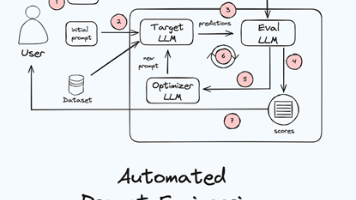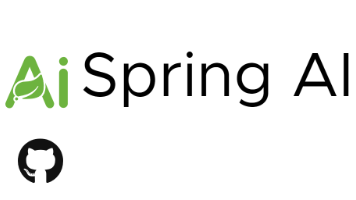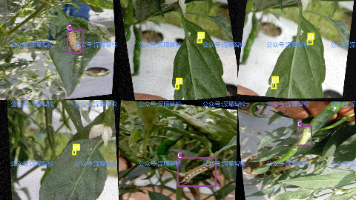GridLayout(网格布局)
摘要: GridLayout 是 Android 中用于网格化布局的 ViewGroup,支持行列排列、跨行跨列及动态调整,适合计算器、图片库等规则布局。相比 TableLayout 更灵活,但复杂场景推荐 ConstraintLayout 或 RecyclerView。核心属性包括 rowCount、columnCount 及子 View 的 layout_row/layout_column 定
GridLayout 是 Android 开发中的一种 ViewGroup,用于以网格形式(行和列)组织子 View,适合规则的二维布局,如图片网格、计算器按钮或表单。与 TableLayout 类似,但更灵活,支持跨行跨列和动态调整。GridLayout 在 Android 4.0(API 14)引入,适合现代开发,但对于复杂或动态布局,推荐使用 ConstraintLayout 或 RecyclerView。本教程基于 Android Studio(截至 2025 年 9 月,Koala 2024.1.1),详细讲解 GridLayout 的概念、属性、使用方法、示例代码和最佳实践,适合初学者和需要深入理解的开发者。
1. GridLayout 概念
- 定义:
GridLayout是一个 ViewGroup,将子 View 排列在指定的行和列中,形成网格结构,子 View 可跨行或跨列。 - 特点:
- 灵活定位:通过
rowSpec和columnSpec指定位置。 - 支持跨行/跨列(类似 HTML 的
rowspan/colspan)。 - 比 TableLayout 更现代,减少嵌套,性能较优。
- 适合规则网格,如图片库、键盘布局。
- 灵活定位:通过
- 包:
android.widget.GridLayout(API 14+)。 - 局限:
- 静态布局,动态内容适配不如 RecyclerView。
- 复杂布局配置繁琐,推荐 ConstraintLayout 替代。
2. GridLayout 核心属性
以下是 GridLayout 的常用 XML 属性(res/layout/ 中定义):
| 属性 | 适用对象 | 描述 | 示例 |
|---|---|---|---|
android:rowCount |
GridLayout | 网格行数 | android:rowCount="3" |
android:columnCount |
GridLayout | 网格列数 | android:columnCount="4" |
android:layout_row |
子 View | 指定子 View 的行索引(从 0 开始) | android:layout_row="1" |
android:layout_column |
子 View | 指定子 View 的列索引 | android:layout_column="2" |
android:layout_rowSpan |
子 View | 子 View 跨行数 | android:layout_rowSpan="2" |
android:layout_columnSpan |
子 View | 子 View 跨列数 | android:layout_columnSpan="2" |
android:layout_gravity |
子 View | 控制子 View 在单元格内的对齐 | android:layout_gravity="fill" |
android:padding |
GridLayout | 内边距 | android:padding="8dp" |
- 注意:
- 行/列索引从 0 开始。
layout_gravity可设置为fill、center等,控制单元格内对齐。- 子 View 不需要包裹在类似 TableRow 的容器中,直接添加即可。
3. 使用 GridLayout
GridLayout 可以通过 XML 或代码定义,以下展示两种方式。
3.1 XML 布局中使用
以下是一个简单的计算器按钮网格,使用 GridLayout 排列数字按钮。
<?xml version="1.0" encoding="utf-8"?><!-- Row 0 -->
<Button
android:id="@+id/button7"
android:layout_width="0dp"
android:layout_height="wrap_content"
android:layout_row="0"
android:layout_column="0"
android:layout_gravity="fill"
android:text="7" />
<Button
android:id="@+id/button8"
android:layout_width="0dp"
android:layout_height="wrap_content"
android:layout_row="0"
android:layout_column="1"
android:layout_gravity="fill"
android:text="8" />
<Button
android:id="@+id/button9"
android:layout_width="0dp"
android:layout_height="wrap_content"
android:layout_row="0"
android:layout_column="2"
android:layout_gravity="fill"
android:text="9" />
<Button
android:id="@+id/buttonDivide"
android:layout_width="0dp"
android:layout_height="wrap_content"
android:layout_row="0"
android:layout_column="3"
android:layout_gravity="fill"
android:text="/" />
<!-- Row 1 -->
<Button
android:id="@+id/button4"
android:layout_width="0dp"
android:layout_height="wrap_content"
android:layout_row="1"
android:layout_column="0"
android:layout_gravity="fill"
android:text="4" />
<Button
android:id="@+id/button5"
android:layout_width="0dp"
android:layout_height="wrap_content"
android:layout_row="1"
android:layout_column="1"
android:layout_gravity="fill"
android:text="5" />
<Button
android:id="@+id/button6"
android:layout_width="0dp"
android:layout_height="wrap_content"
android:layout_row="1"
android:layout_column="2"
android:layout_gravity="fill"
android:text="6" />
<Button
android:id="@+id/buttonMultiply"
android:layout_width="0dp"
android:layout_height="wrap_content"
android:layout_row="1"
android:layout_column="3"
android:layout_gravity="fill"
android:text="*" />
<!-- Row 2 -->
<Button
android:id="@+id/button1"
android:layout_width="0dp"
android:layout_height="wrap_content"
android:layout_row="2"
android:layout_column="0"
android:layout_gravity="fill"
android:text="1" />
<Button
android:id="@+id/button2"
android:layout_width="0dp"
android:layout_height="wrap_content"
android:layout_row="2"
android:layout_column="1"
android:layout_gravity="fill"
android:text="2" />
<Button
android:id="@+id/button3"
android:layout_width="0dp"
android:layout_height="wrap_content"
android:layout_row="2"
android:layout_column="2"
android:layout_gravity="fill"
android:text="3" />
<Button
android:id="@+id/buttonMinus"
android:layout_width="0dp"
android:layout_height="wrap_content"
android:layout_row="2"
android:layout_column="3"
android:layout_gravity="fill"
android:text="-" />
<!-- Row 3 -->
<Button
android:id="@+id/button0"
android:layout_width="0dp"
android:layout_height="wrap_content"
android:layout_row="3"
android:layout_column="0"
android:layout_columnSpan="2"
android:layout_gravity="fill"
android:text="0" />
<Button
android:id="@+id/buttonEqual"
android:layout_width="0dp"
android:layout_height="wrap_content"
android:layout_row="3"
android:layout_column="2"
android:layout_gravity="fill"
android:text="=" />
<Button
android:id="@+id/buttonPlus"
android:layout_width="0dp"
android:layout_height="wrap_content"
android:layout_row="3"
android:layout_column="3"
android:layout_gravity="fill"
android:text="+" />
-
资源文件(
res/values/strings.xml):<resources> <string name="app_name">GridLayout App</string> </resources> -
Activity(
MainActivity.kt):package com.example.myapp import android.os.Bundle import android.widget.Button import androidx.appcompat.app.AppCompatActivity class MainActivity : AppCompatActivity() { override fun onCreate(savedInstanceState: Bundle?) { super.onCreate(savedInstanceState) setContentView(R.layout.activity_main) // 示例:为等于按钮添加点击事件 findViewById<Button>(R.id.buttonEqual).setOnClickListener { // 处理计算逻辑 } } } -
效果:
- 4x4 网格,显示数字和运算符按钮。
- 0 按钮跨两列(
layout_columnSpan="2")。 - 按钮宽度通过
layout_width="0dp"和layout_gravity="fill"平均分配。
3.2 代码中使用
动态创建 GridLayout 和按钮:
package com.example.myapp
import android.os.Bundle
import android.widget.Button
import android.widget.GridLayout
import androidx.appcompat.app.AppCompatActivity
class MainActivity : AppCompatActivity() {
override fun onCreate(savedInstanceState: Bundle?) {
super.onCreate(savedInstanceState)
// 创建 GridLayout
val gridLayout = GridLayout(this).apply {
layoutParams = GridLayout.LayoutParams(
GridLayout.LayoutParams.MATCH_PARENT,
GridLayout.LayoutParams.MATCH_PARENT
)
rowCount = 4
columnCount = 4
setPadding(16, 16, 16, 16)
}
// 按钮标签
val buttons = listOf("7", "8", "9", "/", "4", "5", "6", "*", "1", "2", "3", "-", "0", "=", "+")
var index = 0
// 创建 4x4 网格按钮
for (row in 0 until 4) {
for (col in 0 until 4) {
if (index < buttons.size) {
val button = Button(this).apply {
text = buttons[index]
layoutParams = GridLayout.LayoutParams().apply {
width = 0
height = GridLayout.LayoutParams.WRAP_CONTENT
rowSpec = GridLayout.spec(row)
columnSpec = GridLayout.spec(col, 1f)
if (text == "0") { // 0 按钮跨两列
columnSpec = GridLayout.spec(col, 2, 1f)
col + 1 // 跳过下一列
}
}
}
gridLayout.addView(button)
index++
}
}
}
// 设置布局
setContentView(gridLayout)
}
}
4. GridLayout 与其他布局对比
| 布局类型 | 优点 | 缺点 | 使用场景 |
|---|---|---|---|
| GridLayout | 灵活网格,减少嵌套 | 动态内容适配差,配置复杂 | 静态网格(如计算器) |
| ConstraintLayout | 灵活,性能优,支持复杂定位 | 学习曲线稍陡 | 复杂 UI、响应式设计 |
| TableLayout | 简单表格布局 | 灵活性低,跨行/列复杂 | 静态表单 |
| RecyclerView | 动态列表/网格,高效 | 需要适配器 | 动态网格、长列表 |
- 推荐:GridLayout 适合静态网格布局(如计算器、图片预览)。动态或复杂布局推荐 RecyclerView 或 ConstraintLayout。
5. 示例:图片网格布局
以下是一个图片网格界面,使用 GridLayout 显示 2x2 图片。
-
布局文件(
res/layout/activity_gallery.xml):<GridLayout xmlns:android="http://schemas.android.com/apk/res/android" android:layout_width="match_parent" android:layout_height="match_parent" android:rowCount="2" android:columnCount="2" android:padding="8dp"> <ImageView android:layout_width="0dp" android:layout_height="0dp" android:layout_row="0" android:layout_column="0" android:layout_gravity="fill" android:src="@drawable/image1" android:contentDescription="@string/image1_desc" /> <ImageView android:layout_width="0dp" android:layout_height="0dp" android:layout_row="0" android:layout_column="1" android:layout_gravity="fill" android:src="@drawable/image2" android:contentDescription="@string/image2_desc" /> <ImageView android:layout_width="0dp" android:layout_height="0dp" android:layout_row="1" android:layout_column="0" android:layout_gravity="fill" android:src="@drawable/image3" android:contentDescription="@string/image3_desc" /> <ImageView android:layout_width="0dp" android:layout_height="0dp" android:layout_row="1" android:layout_column="1" android:layout_gravity="fill" android:src="@drawable/image4" android:contentDescription="@string/image4_desc" /> </GridLayout> -
资源文件(
res/values/strings.xml):<resources> <string name="image1_desc">Image 1</string> <string name="image2_desc">Image 2</string> <string name="image3_desc">Image 3</string> <string name="image4_desc">Image 4</string> </resources> -
Activity(
GalleryActivity.kt):package com.example.myapp import android.os.Bundle import androidx.appcompat.app.AppCompatActivity class GalleryActivity : AppCompatActivity() { override fun onCreate(savedInstanceState: Bundle?) { super.onCreate(savedInstanceState) setContentView(R.layout.activity_gallery) } } -
效果:
- 2x2 网格显示四张图片。
- ImageView 使用
layout_gravity="fill"填充单元格。
6. 最佳实践
- 优先 RecyclerView/ConstraintLayout:GridLayout 适合静态网格,动态内容推荐 RecyclerView,复杂布局用 ConstraintLayout。
- 清晰命名:为 View 设置有意义的 ID(如
@+id/button7)。 - 可访问性:
- 添加
contentDescription:<Button android:contentDescription="Number 7" ... /> - 确保文本大小和对比度符合 WCAG 标准.
- 添加
- 响应式设计:
- 使用
dp和sp单位。 - 测试多屏幕适配(Android Studio 的 Layout Editor)。
- 使用
- 版本控制:
- 将布局文件纳入 Git,添加
.gitignore:/build /.idea
- 将布局文件纳入 Git,添加
- 性能优化:
- 避免过多子 View,检查 Overdraw(Layout Inspector)。
7. 常见问题与解决方案
| 问题 | 解决方法 |
|---|---|
| View 未显示 | 检查 layout_row/layout_column 是否正确;确保 layout_width/layout_height 合理。 |
| 网格不对齐 | 使用 layout_gravity="fill" 或调整 rowCount/columnCount。 |
| 动态内容不适应 | 切换到 RecyclerView 或 GridView。 |
| 跨行/列失效 | 确保 layout_rowSpan/layout_columnSpan 设置正确,且不冲突。 |
8. 进阶提示
- 迁移到 ConstraintLayout:
<androidx.constraintlayout.widget.ConstraintLayout ...> <Button app:layout_constraintTop_toTopOf="parent" app:layout_constraintStart_toStartOf="parent" ... /> <Button app:layout_constraintTop_toTopOf="parent" app:layout_constraintStart_toEndOf="@id/button7" ... /> </androidx.constraintlayout.widget.ConstraintLayout> - Jetpack Compose 替代:
@Composable fun CalculatorGrid() { LazyVerticalGrid( columns = GridCells.Fixed(4), modifier = Modifier.padding(16.dp), contentPadding = PaddingValues(8.dp) ) { items(listOf("7", "8", "9", "/", "4", "5", "6", "*", "1", "2", "3", "-", "0", "=", "+")) { text -> Button( onClick = {}, modifier = Modifier.padding(4.dp) ) { Text(text) } } } } - 动态添加 View:
val button = Button(this).apply { text = "New" layoutParams = GridLayout.LayoutParams().apply { rowSpec = GridLayout.spec(4) columnSpec = GridLayout.spec(0) width = 0 height = GridLayout.LayoutParams.WRAP_CONTENT } } gridLayout.addView(button)
9. 总结
GridLayout 是一种灵活的网格布局 ViewGroup,适合规则的静态网格,如计算器按钮或图片展示。通过 layout_row、layout_column 和 layout_span 实现精确排列。相比 TableLayout,它更现代且减少嵌套,但动态内容或复杂布局推荐使用 RecyclerView 或 ConstraintLayout。结合 Material Design 和最佳实践,GridLayout 可快速构建规则网格界面。
如果需要更复杂示例(如动态网格、Compose 迁移)、特定场景指导,或其他 Android 相关问题(如 RecyclerView 对比),请告诉我!
更多推荐
 已为社区贡献24条内容
已为社区贡献24条内容









所有评论(0)